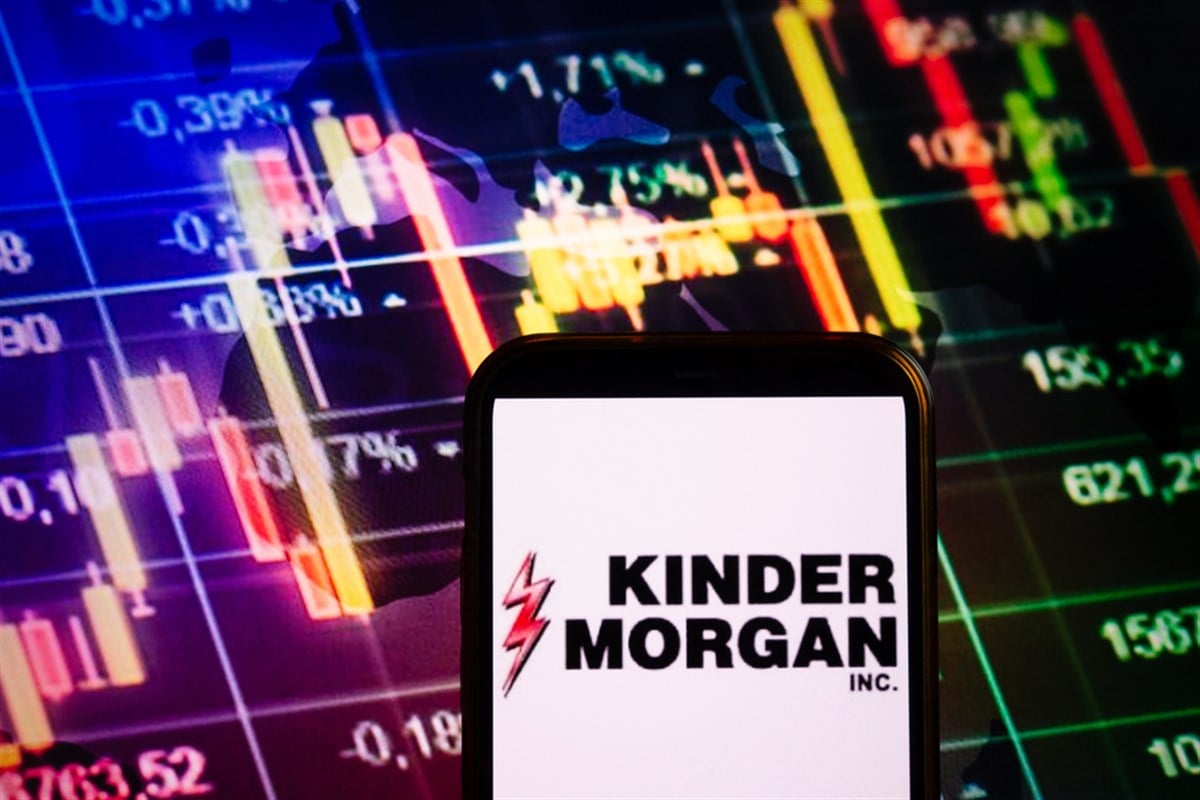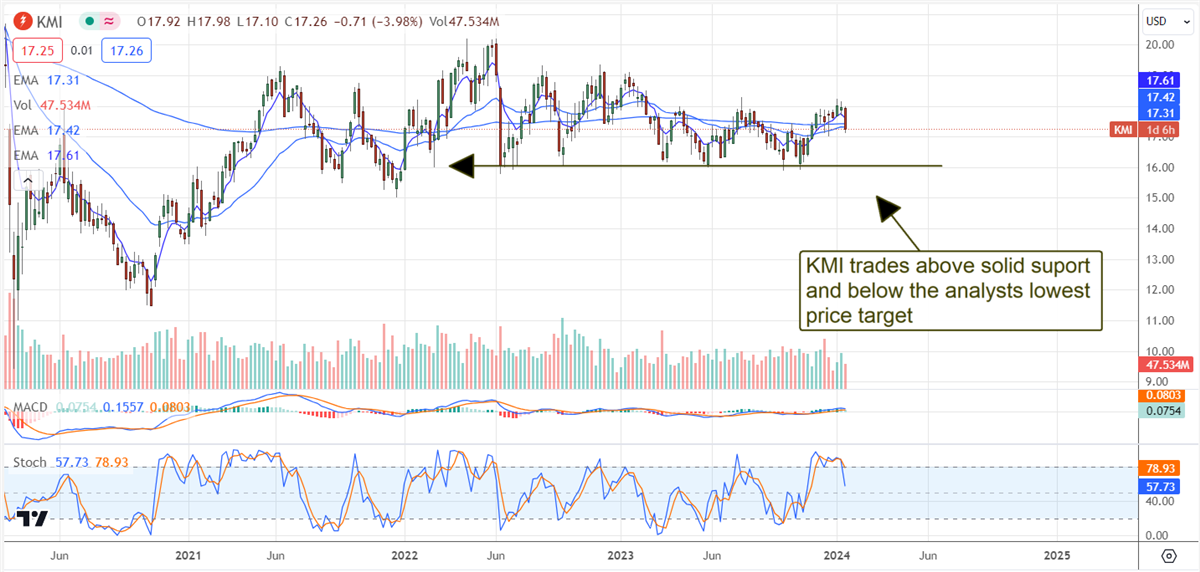
Kinder Morgan (NYSE: KMI) had a weak Q4, with the top and bottom line results falling short of the consensus estimates. The top line missed consensus by a wide margin due to a decline in volume, but so what? At the same time, the company produced margin improvement and solid cash flow to support its growth and capital return outlook. The company generated ample coverage for its acquisitions and dividends, leaving room for share repurchases in 2023. That trend is expected to continue in 2024, and the business outlook has improved.
Kinder Morgan closed its latest acquisition at the end of the calendar year. STX Midstream was bought from NextEra Energy Partners (NYSE: NEP) for $1.815 billion. STX is located in southeast Texas, connecting the Eagle Ford with critical Gulf coast energy markets, including Mexico. The acquisition connects with multiple KMI assets, expanding its reach and utility. The company funded the project internally using a small amount of short-term debt. The acquisition is expected to be accretive immediately and impacted guidance for 2024.
Kinder Morgan stock falls on weak results
Kinder Morgan had a tougher time than expected in Q4 but was able to navigate the quarter well. The $4.04 billion in revenue is down 11.8% compared to last year and fell short by 800 basis points but is offset by margin strength. The decline in revenue is due primarily to a decline in the key segment, the natural gas pipeline, because of the decline in natural gas prices. Volume is up, providing leverage for when the natural gas market rebounds.
Margin news is what stands out in the Q4 report. The company’s earnings and distributable cash flow fell in tandem with revenue, but operational quality helped to offset the decline. Notably, the decrease in earnings and DCF is attributed entirely to increased interest expense, a headwind expected to diminish as the year progresses.
Regardless, the 8% decline in earnings and 3.7% in DCF are much better than forecast, given the top-line weakness. The salient point is that $1.17 in DCF was sufficient to pay dividends, fund acquisitions and repurchase shares while maintaining a fortress-like balance sheet.
“Our commitment to returning value to shareholders is unwavering, as we have internally funded capital projects and pay a healthy and growing dividend with robust coverage of $540 million in the fourth quarter. In 2023, we further returned additional value to shareholders by repurchasing more than 31.5 million of our shares for approximately $522 million,” Kinder concluded.
Kinder Morgan guides for growth; capital return growth
Kinder Morgan’s 2024 budget includes earnings and distributable cash flow increases. Earnings are expected to rise by 15% and DCF by 8%, fueling the dividend and debt repayments and paving the way for additional opportunistic share repurchases. The company is on track to increase its dividends this quarter and should be issued with the next declaration. The company plans a $0.02 per share increase worth about 1.7% at current share prices, an annualized payout of $1.15 or 6.6%.
The balance sheet is in great shape. Leverage increased in Q4 with the closing of the STX deal but remains low at 4.2X. The company guidance expects leverage to fall to 3.9X in 2024 and may exceed that target given the Q4 margin performance.
The technical outlook: KMI pulls back into a buying opportunity
The price action in KMI fell after the Q4 report was released, but it may not fall far. The market is already below the analysts' lowest price target, and they are holding the stock. Marketbeat hasn’t tracked any revisions since October 2023, but no significant change is expected because the capital return outlook is sound. As it is, the low price target implies a 10% upside, and the consensus is closer to $20.
The chart is iffy. The market for KMI is down following the report and heading lower. The caveat is that this market is range-bound and will likely hit solid support soon. The worst-case scenario is a move to $16 and the low end of the range for a 7% decline. In this scenario, the market will likely remain range-bound in the year's first half and possibly through year-end. Best-case is that support will kick in above the low end, perhaps as high as $17, and add upward bias to the outlook. A move above the low or high end of the range will be significant; a move below the low end is not expected.

